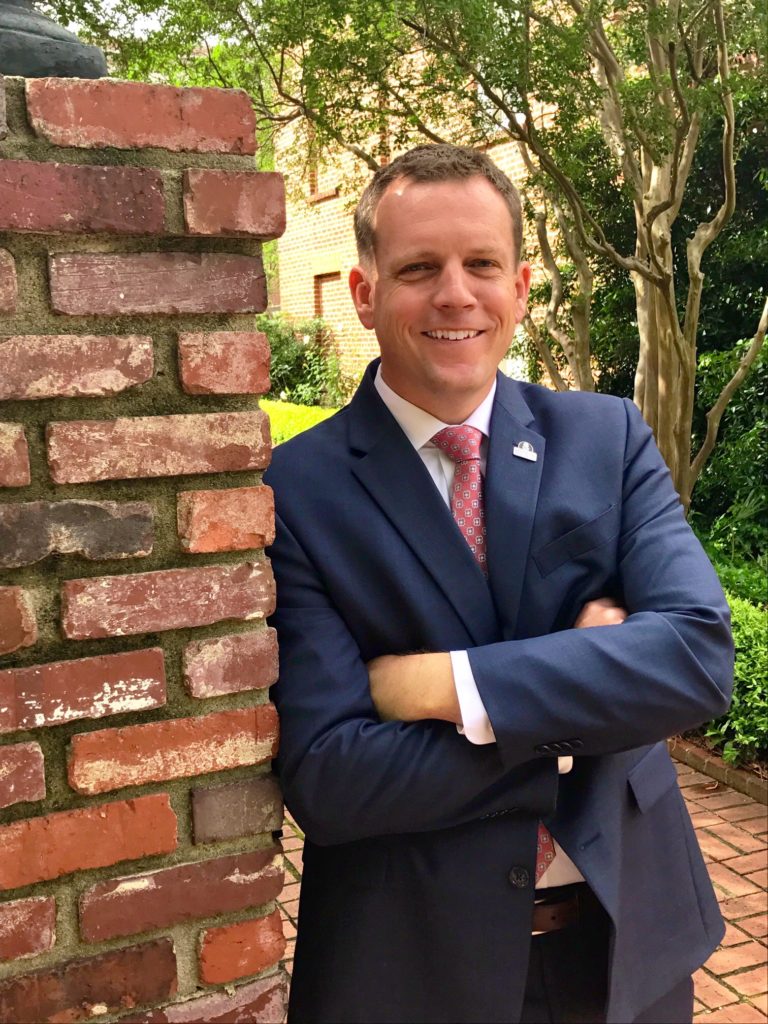Written by Kristin Rearden, clinical professor of STEM education/science.
Thomas Hodges (’07, ’08) described his journey into higher education as an unexpected pathway. As a middle and high school mathematics teacher striving to learn how to be even more effective, he decided to pursue a master’s degree in mathematics education at the University of Tennessee, Knoxville. “I began taking graduate coursework while teaching because I never felt like I knew enough to be a good teacher,” stated Hodges. “But the more courses I took, the more I realized I didn’t know!”
As he delved into the literature of mathematics education, his interest in learning more about the complexities of how to teach mathematics well led him to continue into the PhD program. During this process, he learned not only about teaching but also about himself. “It was not until I was in the midst of the program that I began to see where I might be able to make some contributions to mathematics education,” he stated. “I never saw myself as a writer, or someone that would engage in writing as a primary job responsibility. Yet the UT faculty helped me find that in myself, both within coursework and in my role as a graduate assistant.”
During his doctoral program, three key experiences significantly impacted Hodges. First, he was a graduate assistant supporting JoAnn Cady, professor of mathematics education, on the Appalachian Mathematics and Science Partnership project, a National Science Foundation (NSF) funded grant. “I was blessed to work with professor Cady as she designed, delivered, and researched professional development experience for teachers of mathematics in rural areas of East Tennessee and Kentucky,” noted Hodges. “I learned what it meant to conduct research, and equally important, how to support the professional growth of teachers as they managed the complexities and realities of classroom life.”
A second key experience was planning a mathematics education conference during a course with Vena Long, professor of mathematics education. He admitted that, at the time, he didn’t fully recognize the value of the opportunity. “While I enjoyed the activity and did gain some increased knowledge about our field, it was not until 2018 when I co-chaired an international research conference in mathematics education that I fully appreciated the experience. My doctoral program at UT provided me with both a theoretical grounding of the field alongside unique and practical experiences that were a special part of my experience at UT,” stated Hodges.
A third key experience was a research course with the late Vincent Anfara, professor of educational leadership. The course significantly impacted how Hodges, in turn, supports his own doctoral students at the University of South Carolina. “The copious feedback he provided on my writing still astounds me to this day,” recalled Hodges. “His detailed criticisms were not always easy to take, but he pushed me to be a better writer with every future paper. And while he pushed me to be the best version of myself, he was also one of the most encouraging and supportive people I’ve known. I think about his inspiration often as I work with my own doctoral students.”
Led by co-chairs Cady and Anfara, Hodges focused his doctoral dissertation on the relationship between teacher identity and instructional practices of middle grades mathematics teachers. After graduation, his first faculty appointment was at Western Carolina University. After three years there, he transitioned to the University of South Carolina, where he served in the elementary education program before becoming the program coordinator and eventually the department chair of a 52-member instruction and teacher education unit. This led to his current position as the Associate Dean for Academic Affairs at the University of South Carolina. The role incorporates multiple responsibilities. “I provide leadership in the areas of academic programming, strategic initiatives, professional partnerships, and assessment in the College of Education. I also serve as principal investigator on the Center for Research on Teacher Education, which aims to combine large scale data and teacher personal narratives to improve policy and practice around teacher recruitment, preparation and retention.” Hodges noted that working in administration was not in his initial plan, but it is a perfect fit for his passion for providing effective instruction to all students. “While I never had any specific intentions to work in an administrative role,” stated Hodges, “it has provided the opportunity to broaden my impact and work with a variety of stakeholders to improve public education in our state.”
In his current role as the Associate Dean for Academic Affairs, Hodges has an opportunity to continue his original quest of ensuring that all teachers, including himself, can make a positive impact on students. Hodges noted that this is not easy in today’s society, which seems at times to undervalue the role of teachers. “The greatest challenge we face as a society is the respect and admiration we provide today’s teachers,” Hodges stated. “There is no profession more impactful on our society, more closely tied to our collective future, than P-12 educators.” Hodges sees this as a call to action. “It is time for those of us who work in teacher preparation to look for innovative ways of connecting the P-12 systems to design and deliver teacher preparation. John Goodlad’s notion of simultaneous renewal still rings true today – we can improve schools and universities when we allow each to inform the other.” With his foundation from the Theory and Practice in Teacher Education (TPTE) graduate programs, Hodges is well positioned to continue with multiplying his positive impact on education.
